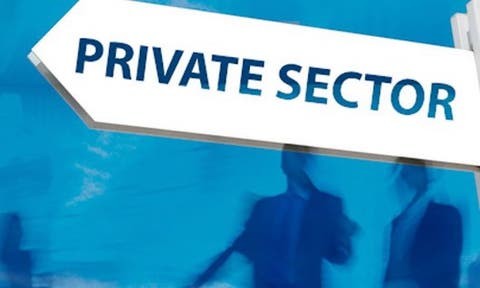OPS Opposes Suspension of New Electricity Tariffs
Representatives of Nigeria’s Organised Private Sector (OPS), namely: Lagos Chamber of Commerce and Industry (LCCI), the Manufacturers Association of Nigeria (MAN), Nigeria Employers Consultative Association (NECA) and the Nigerian Association of Chambers of Commerce, Industry, Mines and Agriculture (NACCIMA), have kicked against any move that would lead to the reversal of the new electricity tariffs, and fuel price announced by the federal government as part of its measures to deregulate the power and energy sectors of the Nigerian economy.
The OPS also commended the Nigerian Labour Congress (NLC) and the Trade Unions Congress (TUC) for suspending by two weeks the labour strike they planned against the increase in tariffs in order to enable negations and peaceful settlement of the conflicts without disrupting economic activities.
It also advised the labour unions to negotiate and secure palliative that would cushion the temporary effects of the deregulation policies on the masses.
Following the threat by the organised labour to organise a mass action, the federal government and the labour unions had resolved to suspend the implementation of the new electricity tariffs for two weeks to enable a committee set up by both parties to study the issue.
After a marathon meeting that ended in the early morning of yesterday, the organised labour suspended its planned nationwide industrial action for two weeks.
To address the workers’ grievances against deregulation, it was agreed that the NNPC would expedite action on the rehabilitation of the nation’s four refineries located in Port Harcourt, Warri and Kaduna and to achieve 50 per cent completion for Port Harcourt by December 2021, while timelines and delivery for Warri and Kaduna will be established by an inclusive steering committee.
On the issue of electricity tariffs reforms, the parties agreed to set up a technical committee comprising Ministries, Departments, Agencies (MDAs), NLC and TUC, which will work for the duration of two weeks effective from Monday (yesterday), September 28.
The Director-General of NECA, Mr. Timothy Olawale, yesterday, in a press statement stated that the Nigerian government would risk rolling back the gains of the recent reforms in the power sector and would further miss the opportunity to build on a credible electricity market for investors if it reverted to a subsidised electricity market.
Olawale said: “We believe that there is no point reversing the decision on the service-reflective tariff and subsidising the electricity market since it would deter investors and drag Nigeria’s push to enforce a credible electricity market. This would reflect negatively on the economy.
“The federal government may not recover from the cost of reverting to the former tariff rate as it would suffer a huge credibility deficit. The issue of taking one step forward and one step backwards in the power sector will keep pushing away the credible electricity market we are seeking to build.
“Nigeria’s central bank and other industry stakeholders comprising the Nigerian Electricity Regulatory Commission (NERC), the 11 distribution companies (Discos) and others have been leading a progressive charge to drive reform in the power sector. The World Bank has also tied most of its facility support to Nigeria’s power sector, which is in the neighbourhood of $750 million, to credible market reform in the power sector.
“The new electricity tariff will ensure that prices charged by Discos are fair to consumers but sufficient to allow recovery of the efficient cost of operation, including a reasonable return on the capital invested in the business. It is expected to provide the path to transitioning the Nigerian electricity supply industry to the service-based cost-reflective tariff.”
The NECA, however, noted that the call by the labour unions to the federal government that the infrastructural challenge in the sector should be addressed “is both genuine and imperative. A major sore point for consumers generally is the incidence of estimated billing, which has pitched the DISCOS against consumers. It is paramount that pre-paid meters are installed for all consumers to increase the confidence of Nigerians, rather than the current controversial estimated billing.”
While all efforts made by THISDAY to get the Discos’ Director of Research and Advocacy, Mr. Sunday Oduntan, to comment on the suspension of tariffs, proved abortive as he neither picked his calls nor replied to texts sent to him, a senior official of one of the electricity Distribution Companies (Discos), told THISDAY that the power companies received the news about the suspension with shock, describing it as a setback to the power sector. (Thisday)


